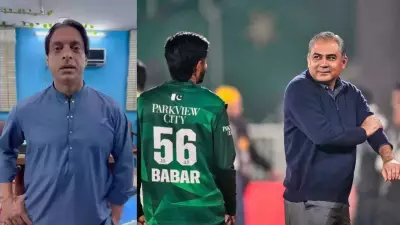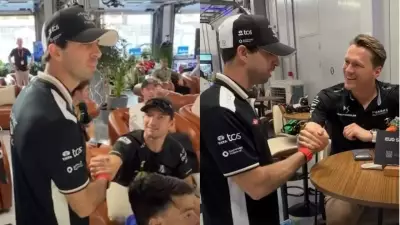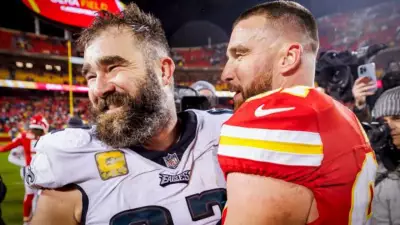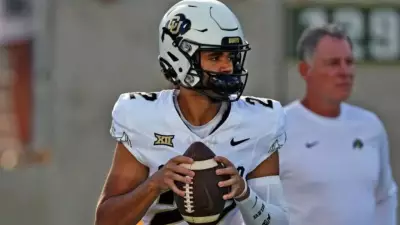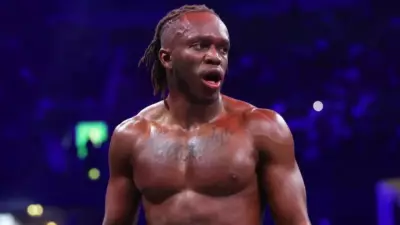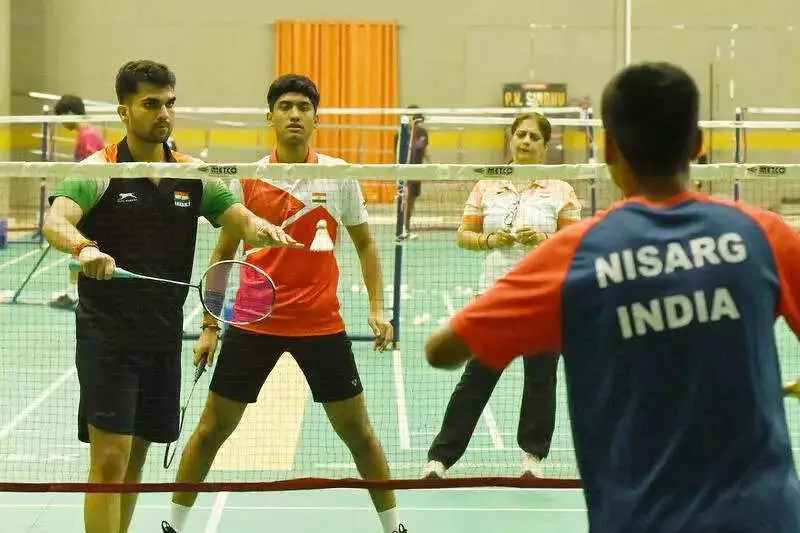
Silent Warriors of the Shuttlecock: India's Deaf Badminton Team Prepares for Glory
In a private stadium in Noida's Sector 73, the rhythmic sound of shuttlecocks meeting racquets accompanies a flurry of determined, silent gestures. Here, eight of India's most accomplished deaf badminton athletes are undergoing intensive training for the upcoming Deaflympics in Japan, scheduled to begin on November 16.
An Assembly of Champions
This crucial training camp was organized by the All India Sports Council of the Deaf and is fully funded by the Sports Authority of India. The athletes, who hail from diverse corners of the country including Madurai, Gorakhpur, Ahmedabad, Jaipur, Bhopal, Kolkata, and Punjab, have already proven their mettle on the international stage. However, their paths to this camp have been paved with significant challenges and extraordinary perseverance.
Leading the charge is Jerlin Anika from Madurai, currently ranked world number two in women's singles. At just 21 years old, Jerlin is already a legend in deaf sports. She made history by becoming the first Indian woman Deaflympian to receive the prestigious Arjuna award, following her spectacular performance at the 2022 Brazil Games where she clinched three gold medals in the team, mixed doubles, and singles events.
"I was nervous then, but this time I'm confident. I'll bring the gold medal," Jerlin states with determination. Her journey began at the tender age of 13 when she first represented India at the Deaflympics in 2017. Her father, Jayaratchagan, a small-scale entrepreneur, once struggled to afford her badminton equipment. "People recognise me now in my town. Life has changed," Jerlin adds, reflecting on her hard-earned fame.
Young Talent and Unique Journeys
Sharing the court is 15-year-old Aaditya Yadav from Gorakhpur, who holds the world number five ranking and is the youngest member of the squad. Aaditya's passion for badminton ignited a decade ago when she started training with her father, a badminton coach with the Railways.
"I didn't like studying, I only wanted to play," she admits with candor. Initially, she competed against hearing players, only later discovering the world of deaf tournaments. "That's where I found my real place," says Aaditya, who made her Deaflympics debut in Brazil.
Gauranshi Sharma from Bhopal, currently ranked 18th globally, brings her own unique narrative to the team. As India's first Unicef ‘youth advocate' since 2023, she recalls a pivotal moment at age seven when Saina Nehwal's father watched her play and compared her to Rajiv Bagga, a celebrated deaf Indian badminton player. "That changed everything," she says.
Her journey, however, faced a significant setback when she lost at the national deaf championship in Hyderabad in 2016 and broke down in tears. It was then that coach Sonu Anand Sharma, a former Deaflympian gold medallist, spotted her potential. "She had the right stance and technique. All she needed was belief. In 2022, she and Jerlin won team gold," Sonu recalls.
The Guiding Force and National Recognition
Coach Sonu serves as the quiet, driving force behind the team's remarkable success. Her sharp eye for talent and patient guidance have shaped nearly every player's career. "These players motivate me every day," she expresses through a sign language interpreter. "They prove that silence doesn't mean limitation."
Under her expert leadership, the Indian badminton team secured three golds and one bronze at the 2022 Deaflympics in Brazil. The entire Indian contingent returned home with an impressive tally of 16 medals — eight gold, one silver, and seven bronze. Their extraordinary achievements received recognition at the highest level, with Prime Minister Narendra Modi hosting the team at his residence.
Abhinav Sharma from Jaipur, ranked men's world number two, is preparing for his third Deaflympics. "I thought a gold medal would get me a job like Olympians or Paralympians. But when I got one in 2022, there was no job offer. But that has not demotivated me. I will continue to give my best for the country," he affirms, showcasing unwavering patriotism.
Overcoming Obscurity
Despite their consistent successes, many of these athletes feel the Deaflympics remain overshadowed in public awareness. "People know about Paralympics, not us. However, govt support and the players' discipline have made a difference now," observes coach Sonu. Her hearing counterpart, coach Atul Nigam, echoes this sentiment.
The Deaflympics, governed by the International Committee of Sports for the Deaf (ICSD), are distinct from the Paralympics. These games are specifically designed for communication equality, with athletes competing using visual cues and sign language, creating a truly level playing field for deaf sportspeople worldwide.


